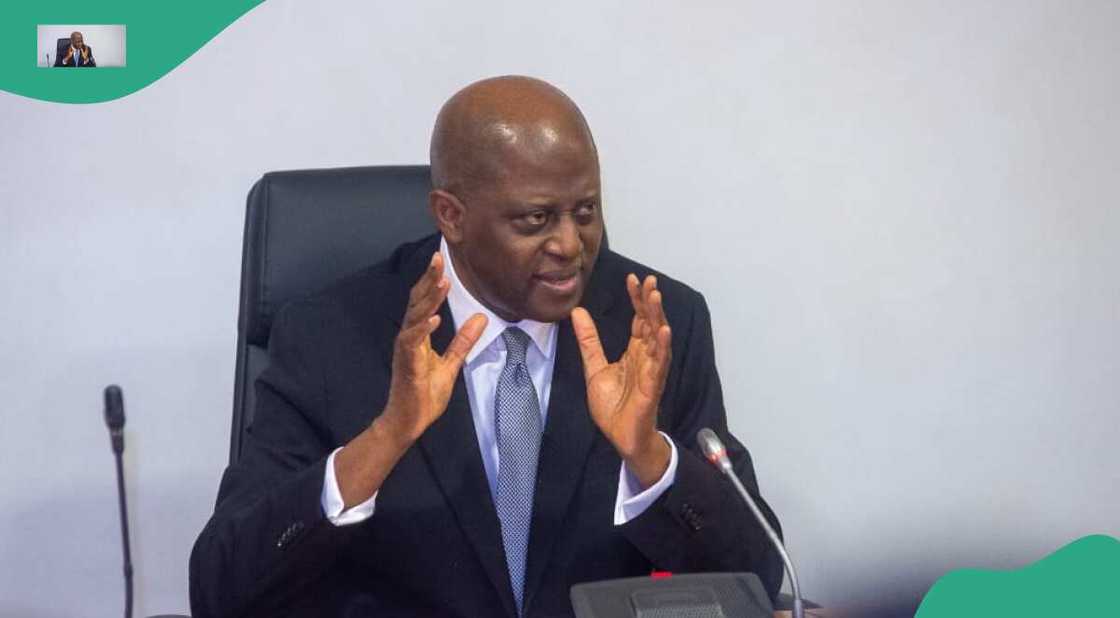Ahead of Deadline: How 11 Banks Mobilised Billions to Meet CBN Recapitalisation Target
- About 11 Nigerian banks have successfully crossed the recapitalisation target set by the Central Bank of Nigeria (CBN)
- Despite the CBN reporting a higher number, verified reports show that the financial institutions have scaled the hurdle
- The development came as the March 31, 2026, deadline set by the apex bank approaches, with several banks, including tier-1 lenders, still lagging
Pascal Oparada, a reporter for Legit.ng, has over ten years of experience covering technology, energy, stocks, investment, and the economy.
With fewer than six months remaining until the jump-in capital deadline set by the CBN, 11 Nigerian banks have already met the boosted minimum capital base requirement.
This surge is significant: the banks together raised an estimated N1.72 trillion to meet that target.

Source: Twitter
International-licence banks: Raising the stakes
The requirement sees banks with international licences, national licences and non-interest banks each affected differently — three with international licences, six with national licences and two non-interest banks made the cut.
The three banks holding international licences faced perhaps the toughest bar. They needed to scale up significantly to align with CBN’s tougher capital base.
Their journey was characterised by strategic rights issues, bond issuances and aggressive capital-raising to hit the target. These banks moved early to avoid last-minute scrambles and signalling to the market that they’re “recapitalised and ready”.
National-licence banks: Consolidation and growth
Six banks with national licences contributed the bulk of those meeting the deadline.
Their strategy often involved combining internal reserves, shareholder injections and leveraging business lines to generate fresh equity.
These banks leveraged their existing franchise strength in the domestic market, mobilised support from shareholders and tapped the retention of earnings to strengthen their position.
They effectively used the impending deadline as a catalyst for internal discipline and a growth mindset.
Non-interest banks: Shaping a unique path
Two non-interest (Islamic-banking-compliant) banks have also met the capital base requirement.
Their journey shows that the same regulatory bar applies regardless of business model.
Their strategic moves involved aligning Sharia-compliant funding, mobilising deposits, and securing investment in a way consistent with both regulatory and ethical frameworks.
Their milestone marks a message that the recapitalisation is broad-based, not just for conventional banks.
Mobilising equity & Capital: The mechanics
Across the board, the banks used a mix of mechanisms: rights issues, quasi-equity instruments, converting retained earnings, lowering risk-weighted assets, and, in some cases, mergers or acquisitions to shore up capital.
According to a BusinessDay report, by adding N1.72 trillion in new equity or risk-adjusted capital, the banks effectively rewrote their balance sheets ahead of the deadline.
This kind of mobilisation sends a strong signal to investors and rating agencies alike.
Why it matters: A stronger banking sector for Nigeria
When banks meet higher capital requirements, they’re better placed to absorb shocks, lend more to productive sectors (including SMEs), and support the real economy.
As Nigeria’s banking regulator raises the bar, banks that cross the line early gain a competitive advantage: clearer regulatory compliance, stronger investor confidence, and potential for faster growth.
What could go wrong: Risks and considerations
Meeting the headline figure doesn’t guarantee smooth sailing:
- Banks still face credit-quality risks in Nigeria’s economy, currency pressures and inflation.
- Having raised fresh capital, they need to deploy it wisely — converting capital into profitable loans rather than just sitting on reserves.
- Those banks that miss the deadline risk regulatory penalties, loss of licence,, downgrades or erosion of market confidence.
Meanwhile, a prior report by Legit.ng disclosed that about 14 banks have fully complied with and met CBN's recapitalisation deadline.
With six months to the March 31, 2026, deadline, the Central Bank of Nigeria (CBN) has confirmed that 14 banks have scaled the recapitalisation hurdle.
The governor of the CBN, Olayemi Cardoso, disclosed this on Tuesday, September 23, 2025, during the Monetary Policy Committee (MPC) meeting in Abuja.

Source: Facebook
The CBN boss said the financial sector has remained resilient, with most financial soundness indicators remaining within the projected benchmarks.
Looking ahead: The finish line and beyond
As the deadline draws near, the 11 banks that have already passed the bar set an example. For banks still working to meet the requirement, the clock is ticking.
But beyond just meeting the requirement, the next stage is effective capital deployment, sustainable growth and resilience. The recapitalisation isn’t an event, it’s a foundation.
In that sense, the banks that “crossed the finish line” early may now be better positioned to sprint ahead in the race of growth, innovation and financial inclusion.
GTBank raises N365bn to hit N500bn target
Legit.ng earlier reported that Guaranty Trust Holding Company (GTCO) has elevated its parent bank, GTBank, into the league of fully compliant institutions under the CBN's latest recapitalisation rules.
On Friday, August 29, 2025, GTCO confirmed a N365.85 billion capital injection via a shareholder-approved two-phase equity programme.
The move raised GTBank’s share capital from N138.19 billion to N504.04 billion, surpassing the CBN’s N500 billion requirement for banks with international licences.
Source: Legit.ng





